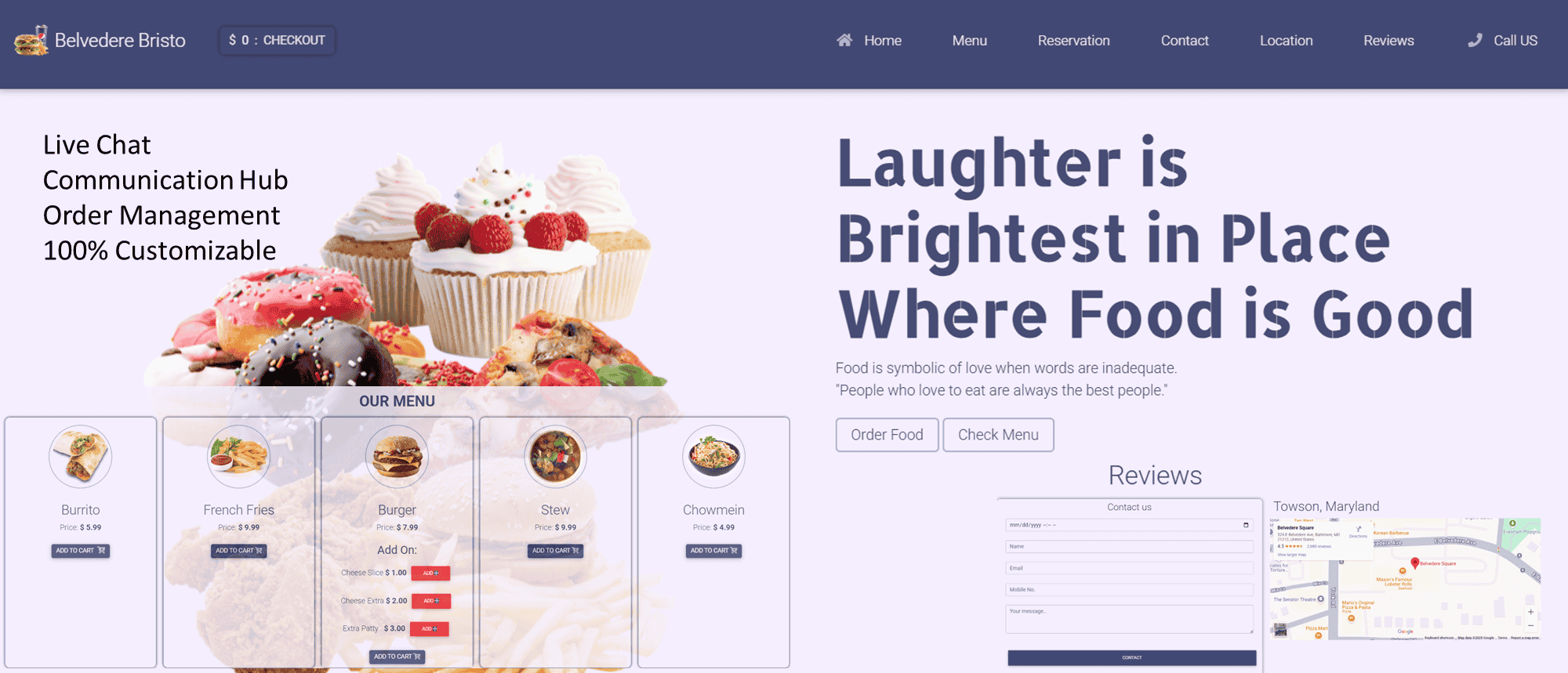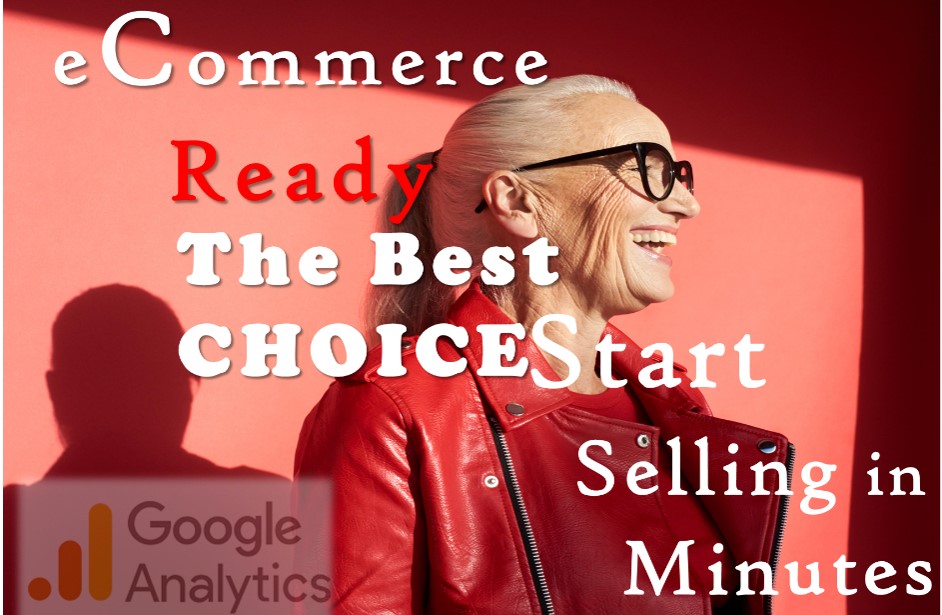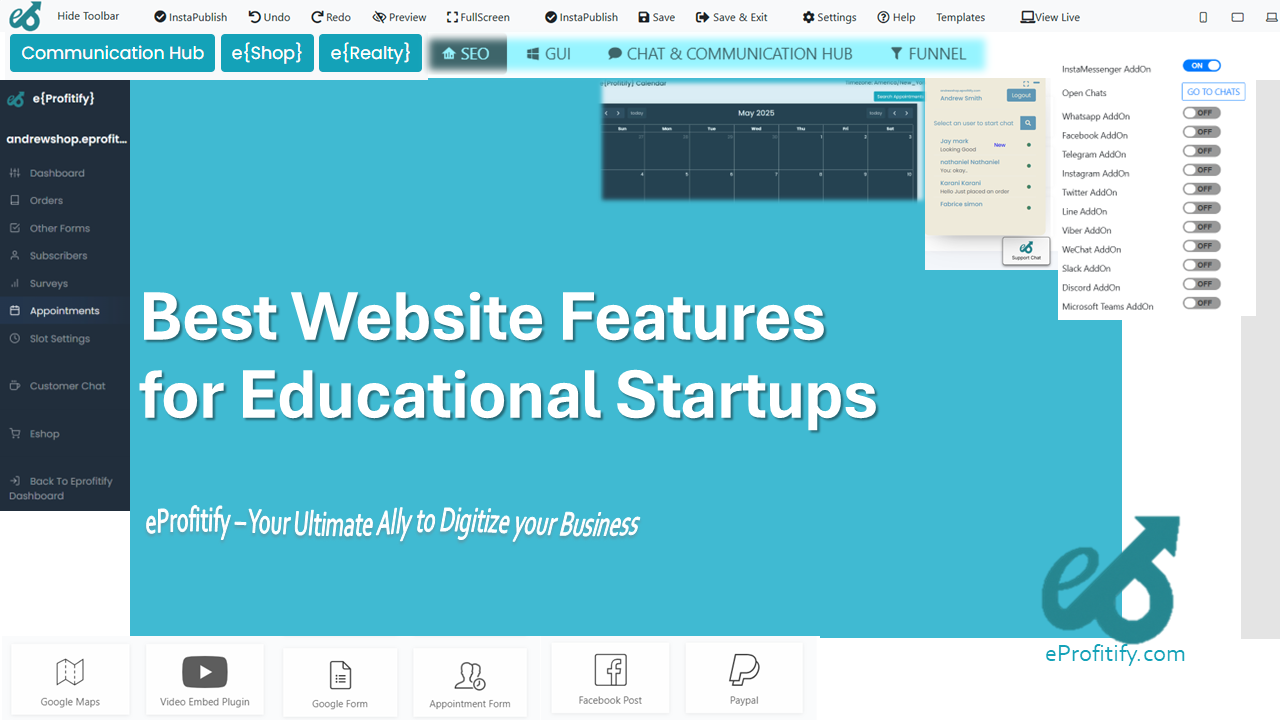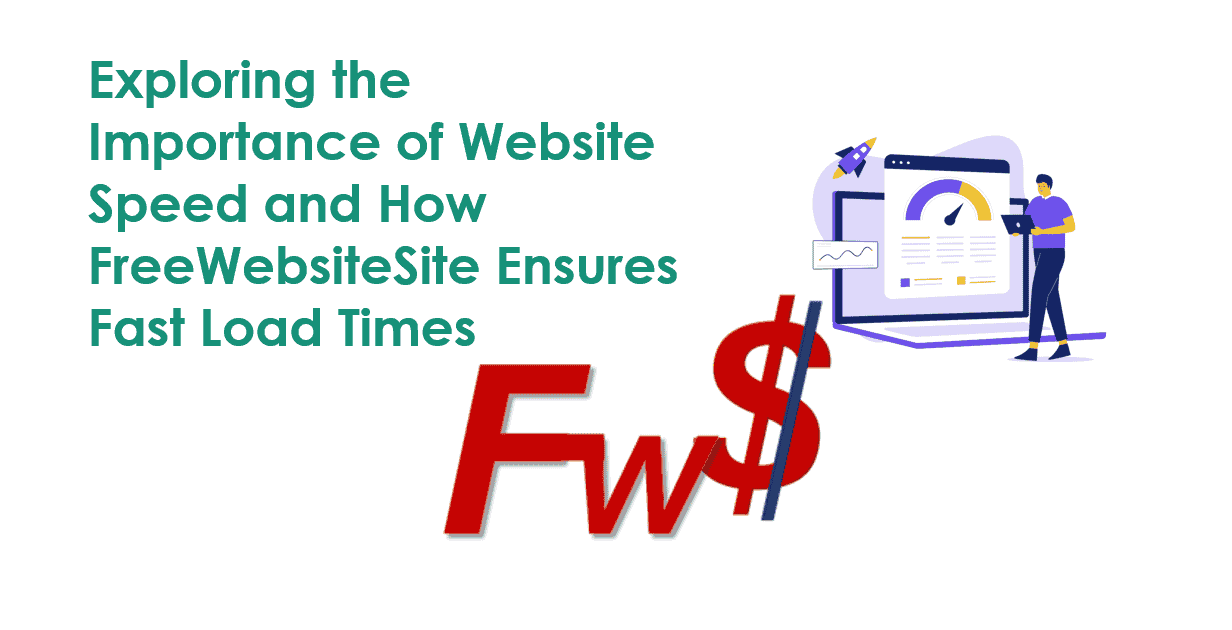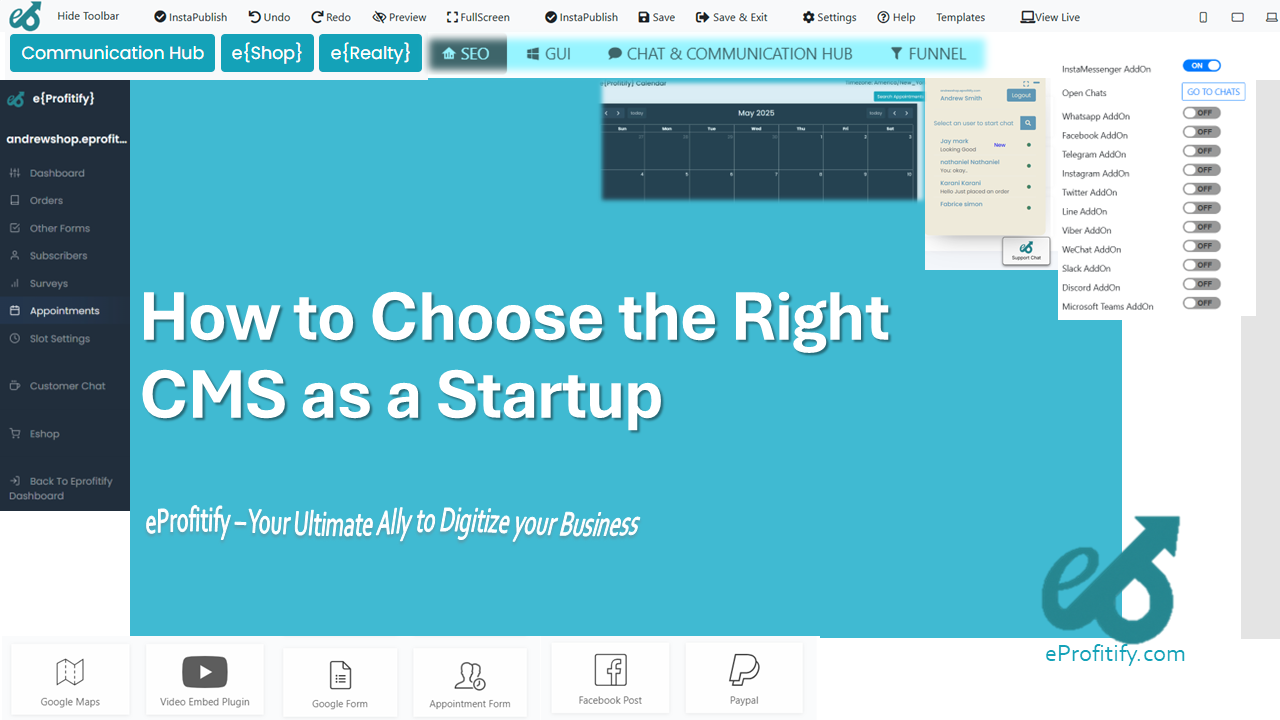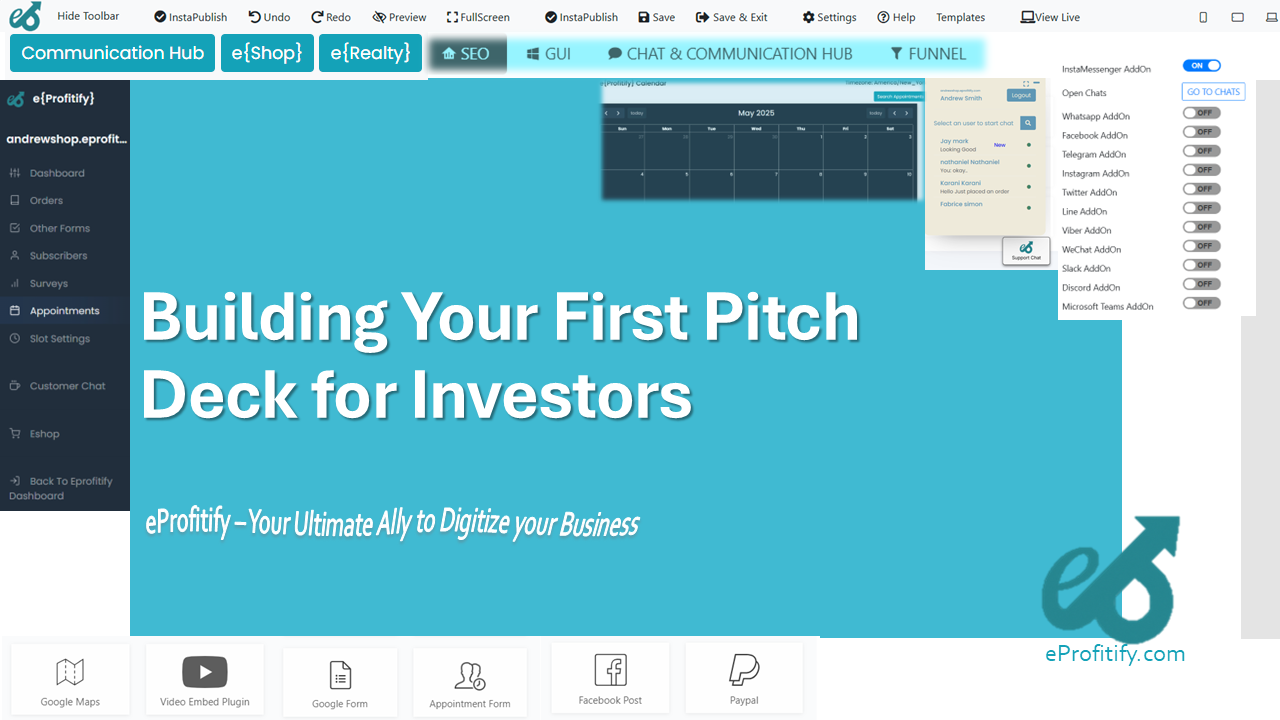Why Founders Should Learn Basic SEO
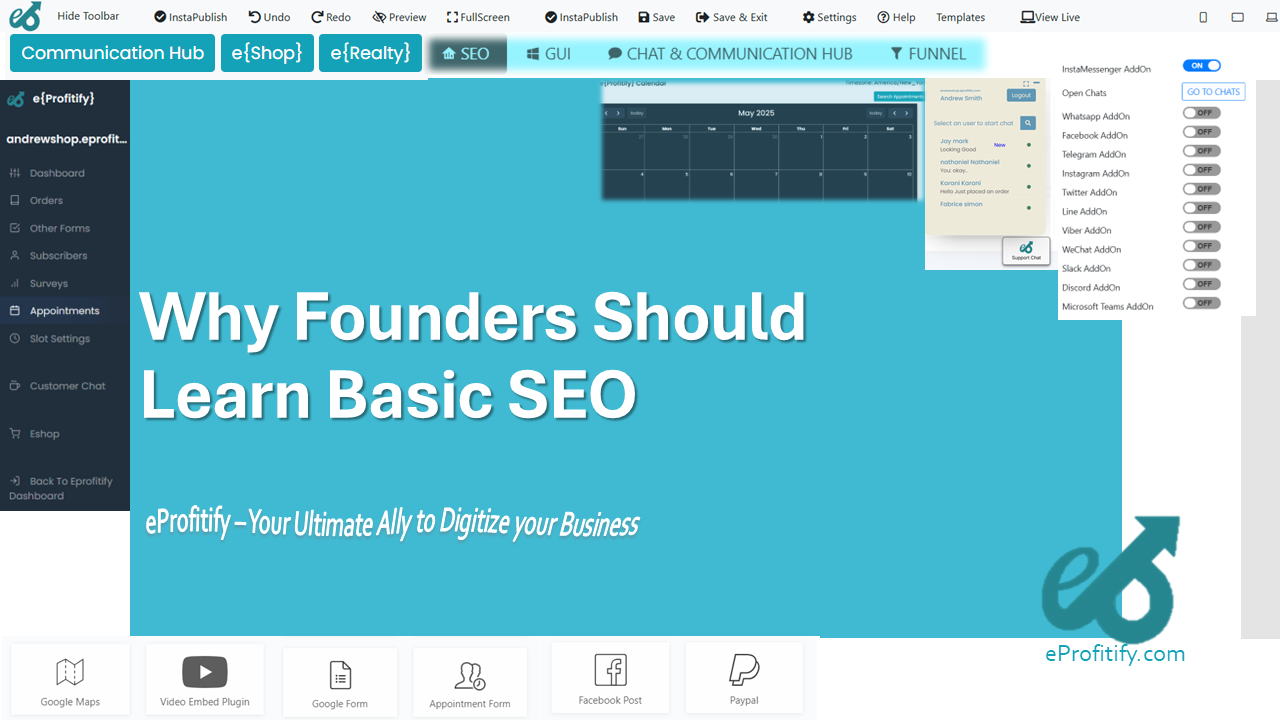
Why Founders Should Learn Basic SEO (And How Tools Like eProfitify Simplify the Process)
In today’s hyper-competitive digital landscape, founders wear many hats. From managing finances to building products, their responsibilities are endless. However, one skill that often gets overlooked—despite its immense value—is Search Engine Optimization (SEO). Understanding basic SEO principles isn’t just a "nice-to-have" for startup leaders; it’s a strategic necessity. With 53% of all website traffic coming from organic search (BrightEdge, 2023), founders who ignore SEO risk losing visibility, credibility, and growth opportunities. This article explores why SEO matters, key strategies for startups, and how tools like eProfitify—a leading website management platform—streamline SEO execution while empowering businesses with advanced features like instant messaging, appointment booking, eCommerce, and CRM.
Why Founders Can’t Afford to Ignore SEO
1. Cost-Effective Growth
Paid advertising can quickly drain a startup’s budget, with the average cost per click (CPC) in competitive industries exceeding $50. In contrast, SEO delivers long-term organic traffic without recurring costs. For cash-strapped startups, this is invaluable: 49% of marketers say organic search has the best ROI of any channel (HubSpot, 2023). By ranking highly for strategic keywords, founders attract qualified leads at scale.
2. Building Trust and Credibility
Google’s first organic search result receives 27.6% of all clicks (Backlinko, 2023), and users inherently trust top-ranking websites. Startups that prioritize SEO position themselves as industry authorities, fostering trust with audiences and investors. For example, a SaaS founder optimizing for terms like "best project management tool for teams" can dominate niche markets by aligning content with user intent.
3. Leveling the Playing Field
Small startups often compete with established brands. SEO enables them to target long-tail keywords (e.g., "affordable CRM for small businesses") that larger competitors overlook. With 68% of online experiences beginning with a search engine (BrightEdge), even modest SEO efforts can drive significant results.
Key SEO Basics Every Founder Should Master
1. Keyword Research
Identify terms your audience is searching for. Tools like Google Keyword Planner or Ahrefs reveal search volume and competition. For instance, targeting "how to start an eCommerce store" (1,600 monthly searches) instead of "eCommerce tips" (10,000+ searches) reduces competition while capturing intent-driven traffic.
2. On-Page Optimization
Optimize page titles, meta descriptions, headers, and content with target keywords. Pages with well-structured headings (H1, H2, etc.) are 40% more likely to rank (GrowthBadger, 2022). Including multimedia like videos can also boost engagement—pages with video attract 3x more backlinks (Moovly).
3. Technical SEO
Founders must ensure their website is crawlable and fast. Key areas include:
- Mobile Optimization: 61% of Google searches occur on mobile (Statista, 2023), and mobile-friendly sites rank higher.
- Page Speed: A 1-second delay reduces conversions by 7% (Portent, 2020). Tools like Google PageSpeed Insights diagnose issues.
- Sitemaps & Indexing: Submit XML sitemaps to Google Search Console to expedite indexing.
4. Content Strategy
High-quality content drives SEO success. Blogs, guides, and case studies targeting user queries build authority. Companies publishing 16+ blogs/month see 3.5x more traffic than those publishing 0-4 (HubSpot).
Common SEO Mistakes Startups Make (And How to Avoid Them)
- Ignoring Local SEO: 46% of Google searches seek local information (Go Gulf). Founders should claim Google Business Profiles and optimize for geo-specific keywords.
- Duplicate Content: Copied content confuses search engines. Use tools like Copyscape to ensure originality.
- Neglecting Analytics: Only 22% of businesses track SEO performance (Databox). Founders must monitor rankings, traffic, and conversions to refine strategies.
How eProfitify Simplifies SEO for Founders
Balancing SEO with other responsibilities is challenging, but platforms like eProfitify simplify the process. As an all-in-one website publishing and management tool, eProfitify integrates SEO-friendly features with powerful business tools:
1. SEO-Optimized Website Builder
eProfitify’s drag-and-drop editor ensures websites are mobile-responsive and fast-loading out of the box. Users can:
- Customize meta titles/descriptions.
- Generate SEO-friendly URLs.
- Add alt text to images effortlessly.
2. Integrated Blogging & Content Tools
The platform’s CMS supports content creation with built-in keyword suggestions and readability scores. Founders can schedule blogs, embed videos, and track engagement—all critical for SEO success.
3. Technical SEO Automation
- Automated Sitemaps: eProfitify generates and submits sitemaps to search engines.
- Speed Optimization: Built-in caching and image compression ensure page load times under 2 seconds.
- Security: SSL certificates are auto-enabled, boosting rankings and user trust.
4. Beyond SEO: Unified Business Management
What sets eProfitify apart is its versatility. Alongside SEO tools, it offers:
- Instant Messaging: Engage visitors in real-time to reduce bounce rates.
- Appointment Management: Seamlessly book meetings, ideal for service-based businesses.
- eCommerce Integration: Create product pages optimized for search, with inventory tracking and payment gateways.
- CRM: Track leads, automate follow-ups, and analyze customer behavior—key for refining SEO strategies.
These features let founders centralize operations while maintaining SEO rigor. For example, an eCommerce founder can optimize product descriptions for SEO, manage customer inquiries via chat, and track sales through CRM—all within eProfitify.
The Bottom Line
SEO isn’t a luxury—it’s a foundational pillar of sustainable growth. Founders who master basics like keyword research, on-page optimization, and analytics unlock consistent traffic, credibility, and cost savings. Tools like eProfitify amplify these efforts by automating technical tasks and unifying business operations. With 61% of marketers citing SEO as their top inbound marketing priority (HubSpot), startup leaders can’t afford to wait. By integrating SEO into their skill set—and leveraging platforms designed for scalability—founders secure their brand’s visibility in an increasingly crowded digital world.
Start learning SEO today. Your future customers—and your bottom line—will thank you.
